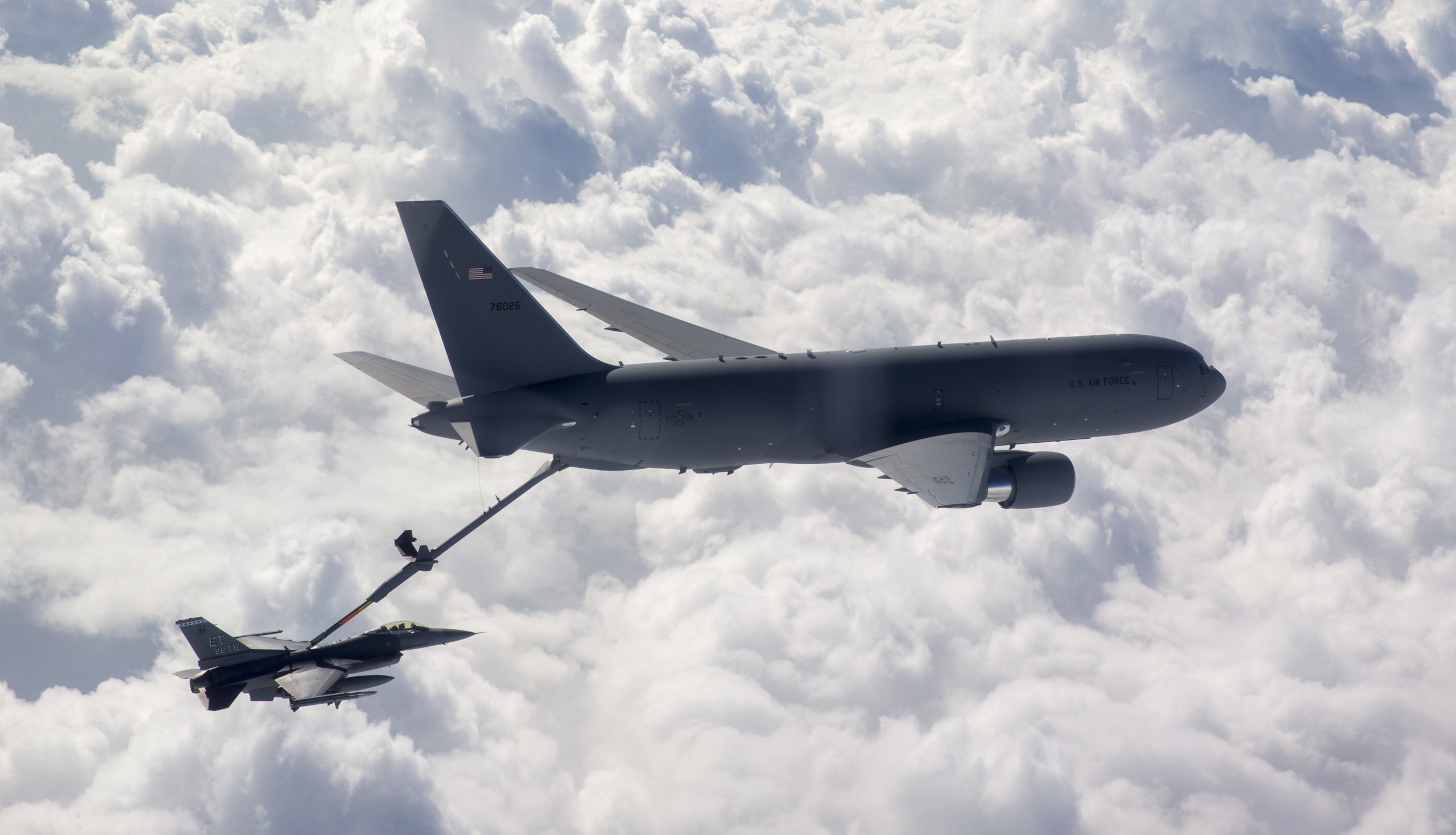A U.S. Air Force F-16 fighter and a KC-46 Pegasus tanker were involved in an aerial refueling incident off the coast of the Netherlands on June 27, service officials told Air & Space Forces Magazine.
The incident was first noticed by a user on the social media site X, formerly known as Twitter, who posted audio from the aircraft radio and air traffic control. Air & Space Forces Magazine has confirmed the recording is authentic.
A KC-46, callsign “Kanza 91” was refueling an F-16 with a “Warhawk” callsign when problems erupted. Someone on the radio frequency says an F-16, “Warhawk 3,” has aerial refueling “door damage” and “a chunk taken out of his spine due to a too close breakaway incident” between the fighter and the tanker. The person later indicates the damage to the spine of the aircraft is aft of the aerial refueling door. An Airman aboard Kanza 91 then says their aircraft was “damaged and unable to refuel” and asked another aircraft to see if there were cables flying from the back of the aircraft. The response was not recorded.
The aircraft involved were an F-16 was assigned to the 52nd Fighter Wing at Spangdahlem Air Base, Germany, and a KC-46A from the 931st Air Refueling Wing, an Air Force Reserve unit based at McConnell Air Force Base, Kan., that is forward deployed to Europe, a spokesperson for the 52nd Fighter Wing told Air & Space Forces Magazine.
“The incident is currently under investigation. Pilots and aircrew returned safely,” the spokesperson said.
The Air Force did not address questions regarding possible damage to either the KC-46 or the F-16.
The 480th Fighter Squadron, nicknamed the Warhawks, is the only fighter unit stationed at Spangdahlem. Open-source flight tracking data reviewed by Air & Space Forces Magazine shows that the KC-46 also took off and landed at Spangdahlem, which often acts as spillover base for airlift and tanker aircraft.
Flight tracking data shows the KC-46 circled near Spangdahlem at roughly 8,000 feet for just short of an hour before landing around four hours after it took off. The aircraft were flying over the Netherlands to participate in an exercise with the Dutch Air Force.
“The aircraft incident did not affect Exercise Turbo Weasel, an incredible training opportunity between the United States and Dutch Air Forces, which occurred during the week of 24-28 June,” the 52nd Fighter Wing spokesperson said.
The KC-46, made by Boeing, has been plagued by problems with its refueling system. The Air Force and Boeing are currently working to resolve multiple Category I deficiencies, including a “stiff” boom and the Remote Vision System (RVS), a setup of cameras and monitors the boom operator uses to connect the tanker to the refueling aircraft. The system washes out or blacks out in certain conditions, such as in direct sunlight. The RVS system can also cause issues with boom operator’s depth perception, which creates the risk of the boom operator accidentally hitting the aircraft the KC-46 is refueling.
However, the cause of the incident on June 27 is unclear.

